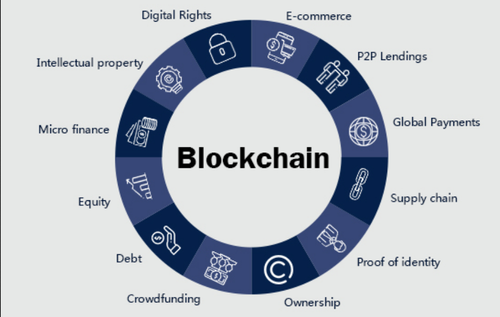What is BaaS, what should you look for when choosing a BaaS vendor – and how can your firm benefit from it?
Many digital entrepreneurs have already heard about the ‘unfair advantages’ provided by the ‘blockchainization’ of their businesses. Meanwhile, they are rarely interested in going down the rabbit hole of distributed ledgers themselves. And here comes ‘Blockchain-as-a-Service’ to allow everyone to harness the potential of decentralized networks without knowing what is under the hood.
Blockchain-as-a-Service 101
In general, Blockchain-as-a-Service (also BaaS) should be referred to as a privately-owned distributed system of data storage and processing customized for the need of specific use-case. It eliminates the need for an enterprise to set up blockchain infrastructure by itself.
Also, it looks like an ‘outsourcing’ in terms of technology and infrastructure. Entrepreneurs can ‘hire’ access to the predetermined amount of decentralized computational volume and use them as a backend to advance their business processes.
BaaS providers can build a proxy to public blockchains like Ethereum (ETH) or Stellar (XLM) or connect their customers to private blockchain-like distributed ledgers.
Blockchain-as-a-Service: What to look for
Choosing the right BaaS vendor is not as easy as it may seem. Here are some basic points you should double-check before signing an agreement.
Smart contracts. Which type of smart contract is supported by this service? Which programming language does it use? How does it match with your existing codebase?
Performance: throughput, bandwidth, etc. In a nutshell, how many operations per second can it process? How can it scale?
Customer support and community management. A strong project always has a passionate community around it.
Flexibility first. The right BaaS needs to be able to adjust in accordance with your request.
Blockchain-as-a-Service: (some) Use cases
While BaaS as a class of infrastructure solutions has a plethora of use-cases, the majority of them belong to the supply chain, public services, banking and anti-counterfeit systems.
 Image via Indiamart
Image via Indiamart
- Supply chain. With BaaS, the producers and transporters can optimize the entire process of shipping their goods. Every shipping can be traced via special blockchain-based tools with no chance of being lost.
- Public services. BaaS systems can be used in the organization of referendums and votings, management of state registers, documents issuance, etc.
- Banking. Next-gen financial ecosystems can leverage BaaS to implement the most profitable strategies in deposits/loans, asset management and so on.
- Anti-counterfeit tools. Blockchain provides plenty of opportunities to verify the authenticity of goods, drugs, cars, food and beverages.
Blockchain-as-a-Service: get access to your own node of top blockchain
Besides permissioned ‘private’ blockchains, top-notch BaaS providers empower their clients with access to recognized blockchains: Ethereum, Bitcoin, Polkadot, etc. Once you get a personal API key, you can move your business processes to ‘world computers’.
GetBlock can connect your decentralized app to almost every node in existence including Bitcoin (BTC) and top programmatic blockchains: Ethereum, Tron, EOS. It keeps 95-100 percent uptime so that your instruments won’t lose connection to the preferred blockchain even in moments of network congestion.
Connections are established with JSON-RPC, REST and WebSockets API methods. At press time, 40+ blockchains are ready to become your decentralized backends in minutes with GetBlock.